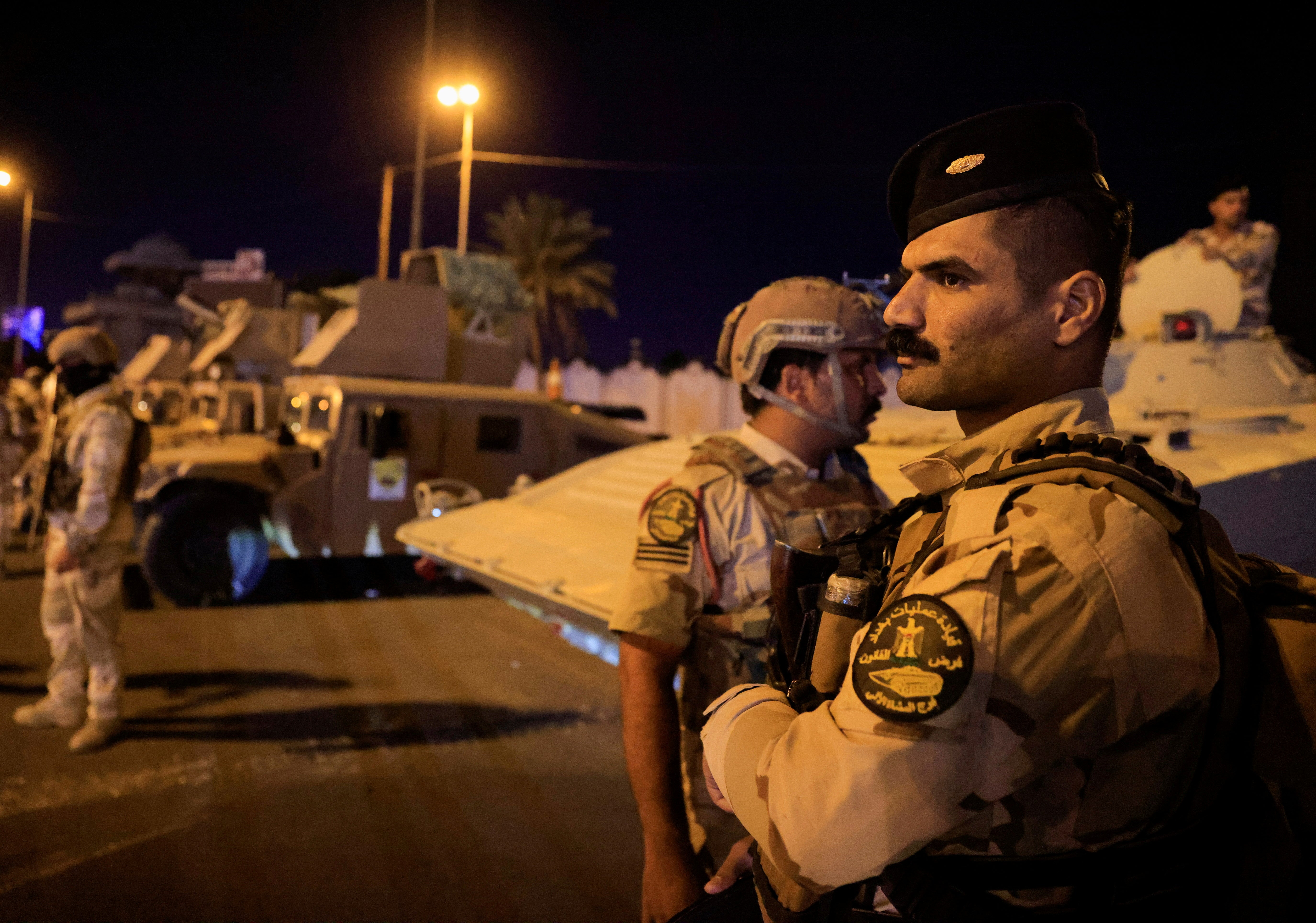Spotlight on Iran as Iraq grapples with assassination attempt on PM
Leader Mustafa al-Kadhimi has been clashing for months with Shia militias under Tehran’s sway

Your support helps us to tell the story
From reproductive rights to climate change to Big Tech, The Independent is on the ground when the story is developing. Whether it's investigating the financials of Elon Musk's pro-Trump PAC or producing our latest documentary, 'The A Word', which shines a light on the American women fighting for reproductive rights, we know how important it is to parse out the facts from the messaging.
At such a critical moment in US history, we need reporters on the ground. Your donation allows us to keep sending journalists to speak to both sides of the story.
The Independent is trusted by Americans across the entire political spectrum. And unlike many other quality news outlets, we choose not to lock Americans out of our reporting and analysis with paywalls. We believe quality journalism should be available to everyone, paid for by those who can afford it.
Your support makes all the difference.The head of Iran’s clandestine overseas services paid a surprise visit to Baghdad shortly after an assassination attempt on Iraqi prime minister Mustafa al-Kadhimi, highlighting Tehran’s outsized role in Iraq’s security.
Quds Force commander Esmail Qaani, the Revolutionary Guard commander who replaced Qassem Soleimani after his assassination last year, arrived in Baghdad late on Sunday to meet Mr Kadhimi and the leaders of Iran-backed militias, Iraqi media and insiders reported.
Earlier, an explosives-laden aerial drone targeted Mr Kadhimi’s home in the highly fortified green zone. Mr Kadhimi was unhurt, but six guards were injured. Iraq’s president Barham Salih described the attack as a prelude to a coup attempt. Washington, Moscow, London and other capitals have decried what was seen as a major attempt to destabilise the country.
No one has admitted carrying out the attack, and the Iraqi government has launched an investigation.
“We will pursue those who committed the crime. We know them well and we will reveal their identities,” Mr Kadhimi said in a statement. “We maintained security in the country, but some are still trying to tamper with Iraq’s security and want it to be a gang state.”
While Isis has carried out similar attacks in the country’s north, many observers suspect the attempt on Mr Kadhimi’s life was the work of Iranian-backed militant groups who have regularly struck US bases in the country as well as the green zone. The prime minister has been clashing for months with Shia militias under Iran’s sway.
Reuters cited unnamed Iraqi security officials as saying at least one Iranian-backed militia was behind the attack, although it remains unclear whether Tehran or anyone in the Iranian leadership ordered the attack.
The militias have become more unruly and unpredictable since the assassination of Soleimani, who was killed in a US drone strike in January 2020, along with Abu Mahdi al-Muhandis, the head of the Shia militias.
“In general the scene is so fragmented both on the Iraqi side and the Iranian side that it’s really hard to see a coherent line of decision-making,” Renad Mansour, an Iraq expert at Chatham House, told The Independent. “Before, you had one guy, Qassem Soleimani, who ran it. And you had Muhandis on the other side, and they both tried to centralise it. That’s all gone.”
The militias have long clashed with Mr Kadhimi, a former journalist and national security official who was elected last year on promises of reform. In May, armed Shia militiamen threatened him in front of his home, and hostility has escalated since the militias’ affiliated parties fared poorly in last month’s Iraqi parliamentary elections. Two members of a Shia militia were killed last week in a protest demanding a manual recount of the election ballots.
Tehran has pressured the government in Baghdad to kick out US troops remaining in the country and has opposed some of Mr Kadhimi’s policies. But although some Iranian-affiliated factions fared poorly in the vote, others made gains, leaving Tehran’s influence mostly intact. However, if Mr Kadhimi were to be assassinated, it would plunge Iraq into a chaotic maelstrom that could keep US troops in the country and hamper Iran’s ambitions for its western neighbour.
Iraqi media and insiders reported that Mr Qaani sought to calm tensions. He reportedly denied knowledge of the attack, offered to help in the investigation and admonished the militias, urging them to respect the rule of law. None the less, experts doubt whether any militia would have launched such a bold attack without some kind of backing from Tehran.
Iran’s hardline media outlets, which are sympathetic to the Iraqi militias, mocked the reports of the attack and suggested that Mr Kadhimi was behind it. The newspaper Vatan-e Emrooz described the attack as “Hollywood night in Baghdad”, while another daily questioned whether it was real or staged.
Ali Shamkhani, head of Iran’s powerful Supreme National Security Council, attributed the attack to “foreign think tanks”.



Join our commenting forum
Join thought-provoking conversations, follow other Independent readers and see their replies
Comments